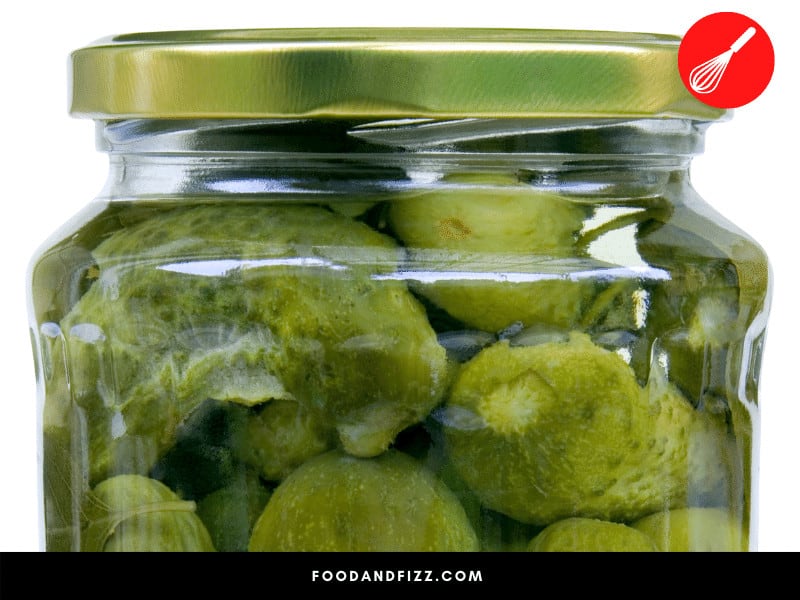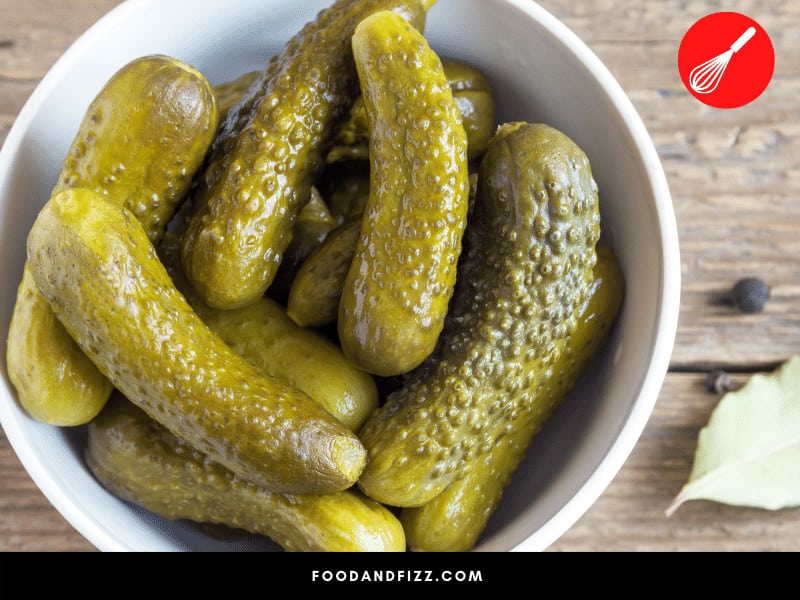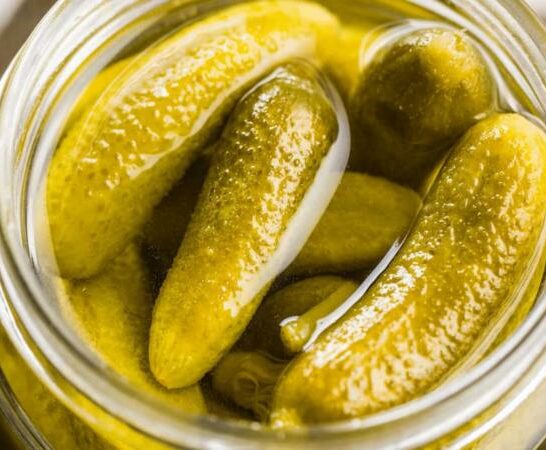If you enjoy eating pickles, you may have noticed that some pickles in the jar seem to float to the top.
Why is this?
Some have explained that it depends on whether the pickle is a home-canned variety or a brand that you have purchased off the shelf of your favorite grocery store.
There are variables that can influence whether a pickle floats or sinks in a pickle jar.
Do pickles float?
Pickles do float. However, it is typically less favorable for pickles to float, as they garner more exposure to air, which can lead to discoloration and shorter shelf life. As long as the seal is intact when buying or canning your pickles, don’t worry too much about any that seem to float in the jar. As long as the flavor is not off, they are fine to eat and generally are just a bit tougher and less flavorful than pickles that are submerged in the jar.

Want to know if pickles float? Keep reading to find out more!
Stuff to Know About Pickles
Do you enjoy eating pickles? While you can pickle practically any vegetable and some fruits, cucumbers are the most common and popular choice for pickling.
As for the pickling liquid, also called brine, the density of the liquid can impact whether your pickles float or not, too.
If you are making a sweet and syrupy liquid, such as you would use for Bread and Butter pickles, use heavier, more seedy cucumbers to prevent floating in the jar.
The issue with floating pickles is that the air trapped above the line where the liquid stops can impact any pickles that are not submerged.
That is, the air can cause discoloration and rancidity in a relatively short time frame.
You can reduce this risk by raw packing your pickles when using a pressure canner or even a crockpot or slow cooker.
Another approach is to reconfigure how the pickles are in the jar by adding other veggies and herbs to help support and submerge the cucumbers.
For example, a long branch of rosemary or some dense radish discs may help keep your cucumbers under the liquid line- while also tasting deliciously pickled!
If you buy a lot of pickles, you may notice that grocery store pickles do not have the misfortune of floating- they sink! It is likely due to the chemicals and preservatives added.

Bad, Rancid, or Spoiled Pickles
As mentioned, pickles are prepared in a brine or pickling liquid that typically contains salt.
The sodium in the salt helps preserve the food- in this case, cucumber pickles- for a long time.
Grocery store pickles may contain ascorbic acid and other preservatives that create a brine, but perhaps with less salt than home-packed pickles contain.
So, in the case that you make your own pickles and notice some floating near the top of the jar, it makes the most sense to check the odor and taste before consuming the pickles.

As mentioned, the air can create discoloration and a difference in texture for the pickles, often making them less tender and tougher.
Also, depending on the circumstances, this air can shorten the shelf life and deteriorate your pickles- so eating them could make you sick.
Always smell the pickles and never consume pickles that have been stored improperly or that have a loose or broken seal in storage.
If the pickles smell off, rancid, or like they have fermented, it is safest to simply discard them.
Some recommend that you can eat unopened pickles with a broken seal as long as you only do so for one sitting and then toss them out.
It is ultimately up to you to do what you think is safest for you and your own family.

Frequently Asked Questions About Pickles
How long do pickles last?
Pickles can last for up to two years when sealed and stored properly.
Can you eat pickles that are not sealed properly?
If you notice that your pickle jar is not sealed tightly or properly, it is best to discard the contents. Some suggest that you should eat the pickles within one day, and instead of putting them in the fridge, throw the rest out. If the pickles smell bad, do not eat them at all.
Can you eat pickles that are fermented?
Fermented pickles are okay to eat, but when the pickles smell bad, rancid, or spoiled, they are likely compromised by harmful bacteria. Never eat pickles that smell bad as they could cause food poisoning.
How do you keep pickles submerged?
Add some other vegetables or ingredients to help keep your cucumbers submerged in the pickling liquid. For instance, cabbage works well and becomes delicious Sauerkraut when pickled! Add some small, dense produce like radishes or even apple wedges, to help hold down the pickles to prevent exposure to air.
Should pickled onions float?
It is best for pickled onions not to float and to be submerged in their pickling liquid. When the pickled onions are not completely submerged, they can become exposed to the air and develop microbes and spoilage.
How do you keep pickles submerged?
Add some other vegetables or ingredients to help keep your cucumbers submerged in the pickling liquid. For instance, cabbage works well and becomes delicious Sauerkraut when pickled! Add some small, dense produce like radishes or even apple wedges, to help hold down the pickles to prevent exposure to air.
Why do homemade pickles shrivel up?
Homemade pickles may shrivel up due to too much salt in the pickling liquid. It also may be a result of using old or inferior cucumbers for the pickles.
Conclusion On Do Pickles Float
Pickles are floating. However, it is best for pickles not to float so they are not exposed to air. As long as the jar is still closed and intact pickled will not go bad even though they are floating above the pickling liquid.

